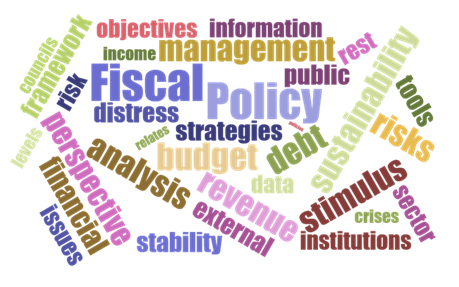Gender Budgeting (GB)

This workshop, presented by the Fiscal Affairs Department, presents the IMF Gender Budgeting Framework that considers how to integrate a gender lens into fiscal policy by implementing different tools across the budget cycle.
Gender equality is on the government’s policy agenda in many countries. As the budget system is a primary policy instrument, it can play a central role in implementing governments’ gender policies and goals.
The workshop will help countries to: (i) develop a deeper understanding of gender budgeting practices and their integration with each stage of the PFM cycle; (ii) apply this to participant country practices through workshops; (iii) initiate a dialogue among participating countries on the design and implementation of gender budgeting initiatives and practices, with the objective of learning lessons and improving the impact of these initiatives. Participants will be invited to explain specific practices in their own countries, assess their own and other countries’ challenges, and propose solutions.
It also brings together government representatives from various agencies – including gender policy coordination units in ministries of finance, and ministries of other specific sectors.
Target Audience
Government officials from various agencies involved in gender budgeting. These agencies include gender policy coordination units, ministries of finance, ministries of planning, and ministries of women. Participants should preferably have some familiarity with the concepts or practice of gender budgeting – but this is not essential.
Qualifications
Mid-level to senior officers with experience in fiscal policy or budgeting.
Course Objectives
Upon completion of this workshop, participants should be able to:
- Identify institutional perspectives on gender-responsive budgeting and gender equality.
- Better understand the levels of practice of gender budgeting at each stage of the PFM cycle and the interrelations between these stages.
- Identify the level of practice of gender budgeting currently being implemented in their own countries and how this can be affected by PFM challenges.
- Identify precise steps in moving towards improved practice in their own countries as well as the possible synergies of these steps with ongoing PFM reforms.
Fintech Market Development and Policy Implications (FINTECH)
English (French) | October 14-18, 2024 | In-person Training | Ebene, Mauritius
Apply online by August 26, 2024
Consumer Price Index-Advanced (CPI-A)
English (Arabic) | November 4-15, 2024 | In-person Training | Abu Dhabi, United Arab Emirates
Apply online by August 26, 2024
Nowcasting (NWC)
English | October 14-25, 2024 | In-person Training | New Delhi, India
Apply online by August 26, 2024
Developing Domestic Debt Markets (DDM)
English (Arabic) | October 27-31, 2024 | In-person Training | Kuwait City, Kuwait
Apply online by August 27, 2024
Balance Sheet Approach (BSA)
English | November 4-8, 2024 | In-person Training | Singapore, Singapore
Apply online by August 30, 2024


